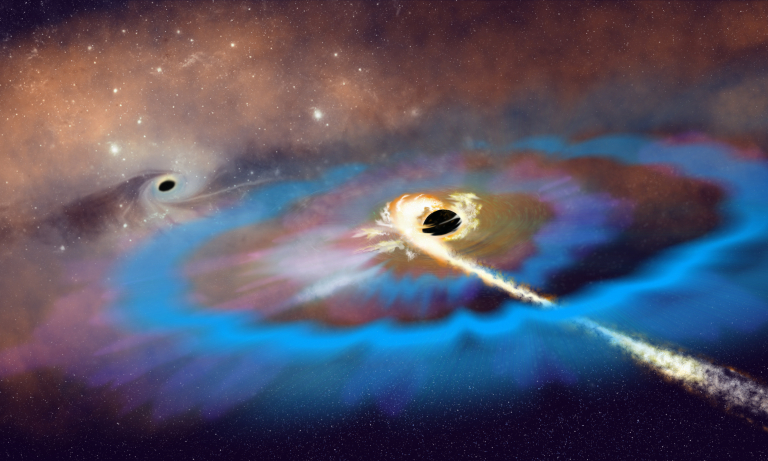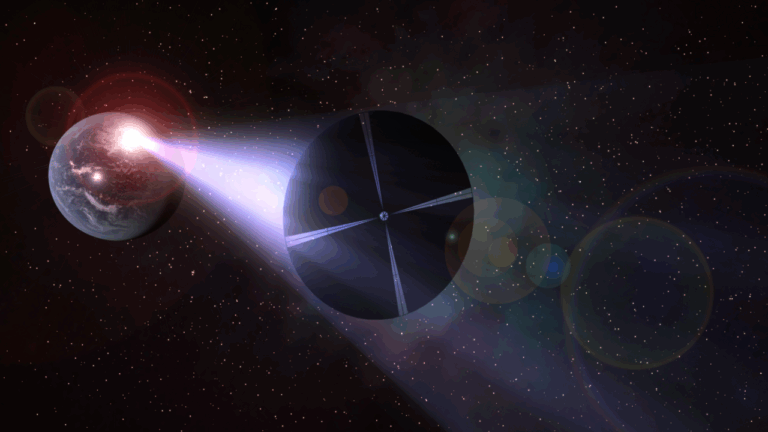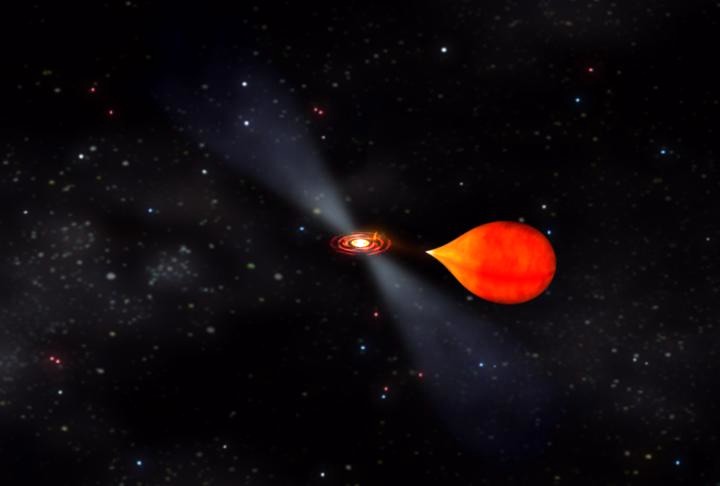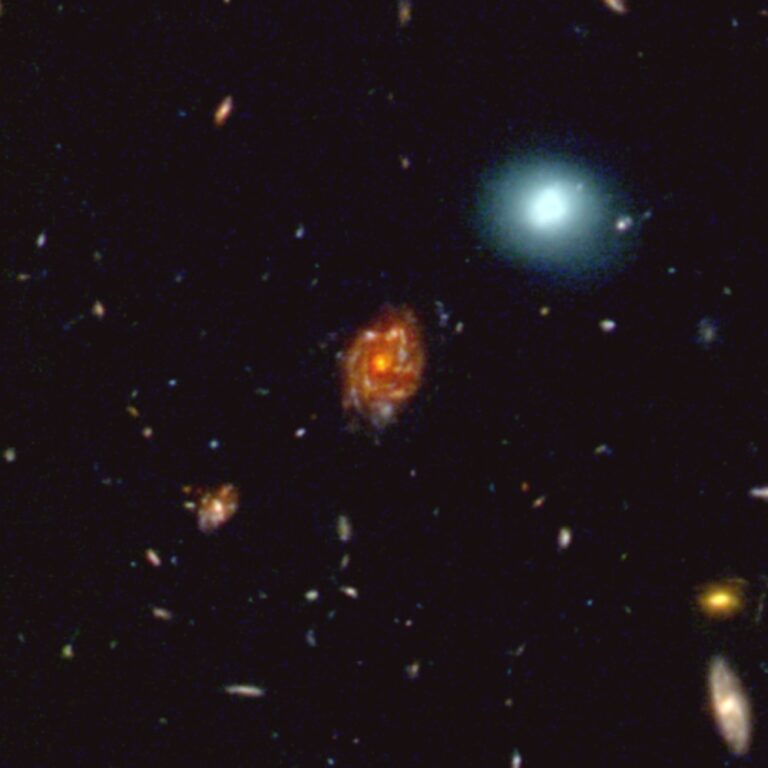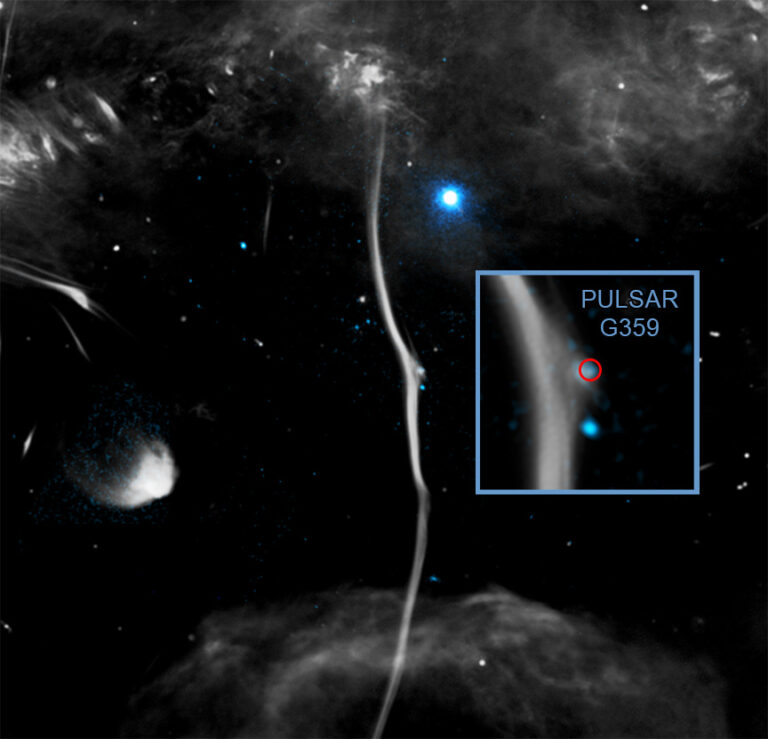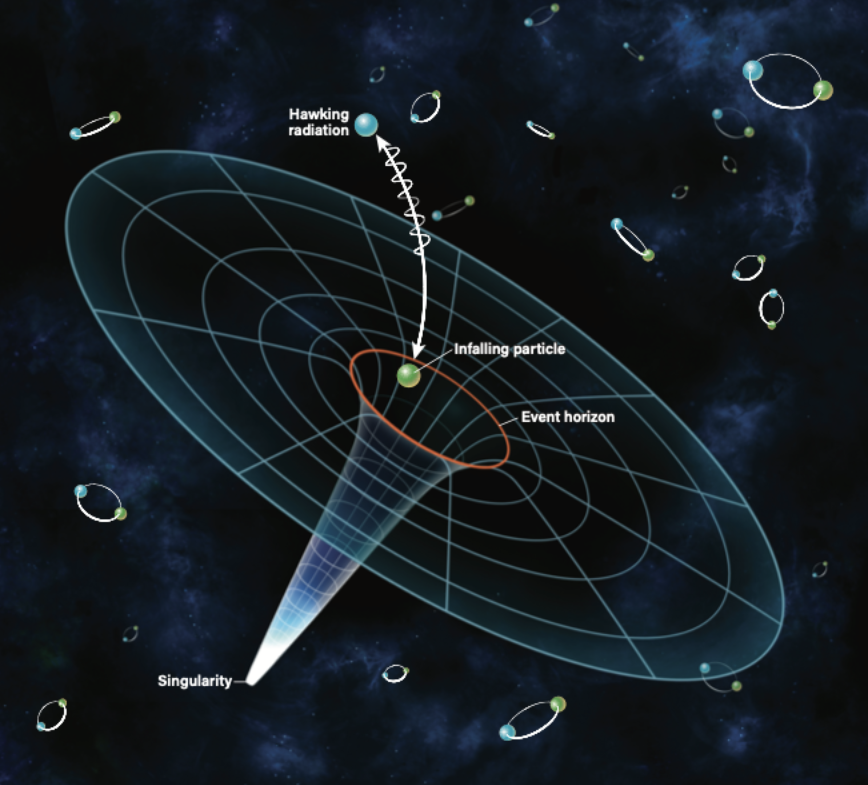
Key Takeaways:
- Black holes pull in everything, even light.
- Black holes slowly lose energy and shrink over vast timescales.
- Tiny black holes could evaporate completely.
- A tiny black hole's evaporation would end with a powerful energy burst.
Do black holes exist forever? If not, how do they die? If yes, is the number of black holes in the universe always increasing?
Eliot H. Ginsberg
Riverview, Florida
Black holes are known for their voracious appetites, consuming everything — even light — that falls inside them with no hope of escape.
But in 1974, Stephen Hawking proposed that in fact, black holes do evaporate.
Everywhere, all the time, infinitesimal particles are popping into and out of existence. They appear in pairs that instantly annihilate each other. (Thank quantum mechanics for this weirdness!) But right at the event horizon, the black hole’s point of no return, sometimes one particle in a pair will fall into the black hole and disappear. Its partner, then, would zoom away — meaning the black hole has emitted energy, and grown smaller.
Hawking reassures readers that it would take far longer than the age of the universe for this to completely evaporate even a solar-mass black hole. But what about tiny, primordial black holes?
They could indeed evaporate entirely, and the process is one that speeds up as it progresses, leading to a large burp of energy in the black hole’s final moment. In Hawking’s own words: “This is a fairly small explosion by astronomical standards but it is equivalent to about 1 million 1 Megaton hydrogen bombs.”
Korey Haynes
Contributing Editor

